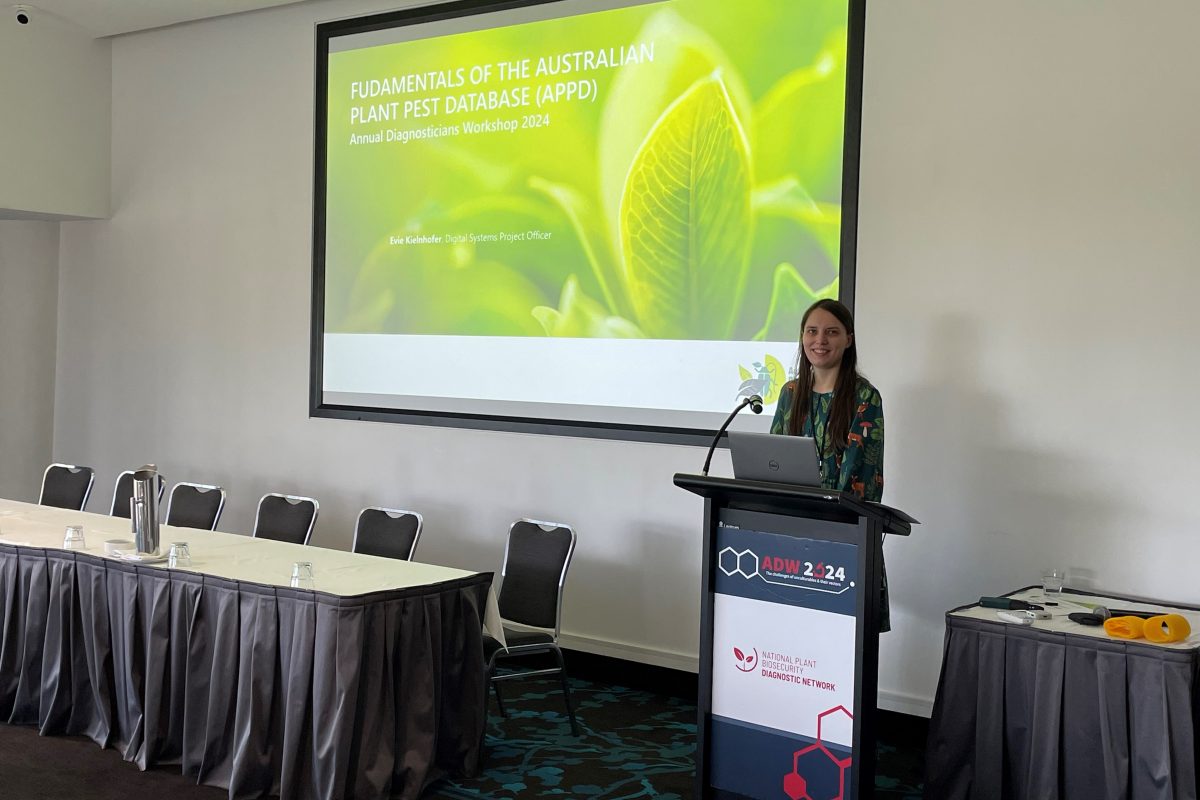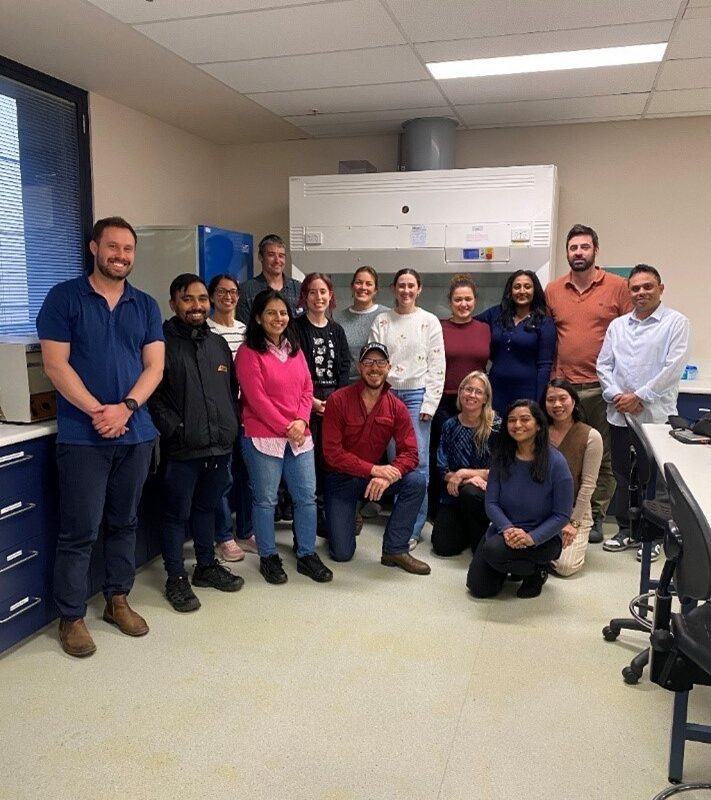PHA’s Digital Systems team presents at diagnostics and surveillance workshops
Plant Health Australia’s (PHA) Digital Systems team recently delivered two shoulder workshops at the Annual Diagnostics Workshop and Annual Surveillance Workshops, held in Tweed Heads, NSW.
The two workshops not only provided attendees with an overview of two of Plant Health Australia’s (PHA) Digital Systems, AUSPestCheck® and the Australian Plant Pest Database (APPD), but also updated users on some of the new features and enhancements that were recently developed.
The team provided an overview of the role of AUSPestCheck® for plant health surveillance as well as core system functionalities through presentations, live demonstrations, and discussion.
AUSPestCheck® offers a range of new features which increase the value for plant surveillance activities. These include a major enhancement in data sharing capabilities of AUSPestCheck® to facilitate data partnerships that help towards improving the national understanding of pest status and surveillance undertaken for enhanced decision making in the event of a detection and provides better understanding of gaps or duplication in surveillance activities. Furthermore, it provides a pathway for two-way sharing of data between industry and government in AUSPestCheck® for building datasets supporting proof of freedom claims for market access. The workshop attracted 20 attendees, from Commonwealth and state governments as well private sectors and universities.
The team also presented a workshop on the Fundamentals of the Australian Plant Pest Database (APPD). Attendees gained an understanding of how to navigate the APPD to locate information on voucher specimens for invertebrates and pathogens that affect plants of economic and ecological significance, develop confidence in their use of the system, and understand the importance of having accurate and up to date reference collection information made available to them for decision making purposes.
Attendees included individuals from various government organisations with expertise in policy and risk analysis, entomology, and plant pathology, as well as collection managers of national reference collections that contribute data to the APPD.






